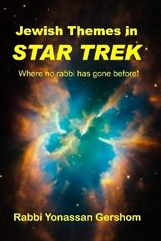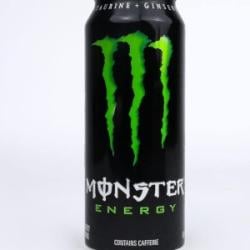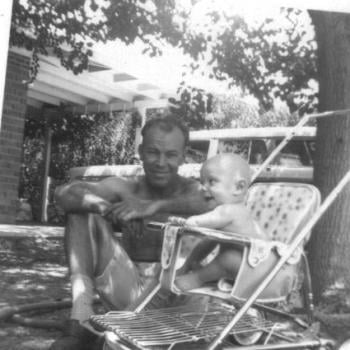By: Rabbi Yonassan Gershom - May 25 2009
 The long awaited Star Trek prequel is here. At last, we get to learn about the early years of James T. Kirk. We see him back in Iowa as a rebellious thrill-seeking boy, on a joyride in his stepfather's Corvette - which he manages to total. Fast-forward a few years, and he's a troublemaker in the middle of a bar fight... which he loses. Clearly, his life is on the road to nowhere.
The long awaited Star Trek prequel is here. At last, we get to learn about the early years of James T. Kirk. We see him back in Iowa as a rebellious thrill-seeking boy, on a joyride in his stepfather's Corvette - which he manages to total. Fast-forward a few years, and he's a troublemaker in the middle of a bar fight... which he loses. Clearly, his life is on the road to nowhere.
Then comes the challenge: "Your father was captain of a starship for 12 minutes. He saved 800 lives, including your mother's and yours. I dare you to do better." Jim Kirk takes that challenge and the journey begins, transforming him from a "genius-level repeat offender" into a genuine leader.
The personal transformation of Captain Kirk parallels the older but similar story of the biblical Jacob. He, too, starts out as a less than admirable character. In his early life, Jacob comes off as an opportunistic trickster. He cheats his brother Esau out of his birthright, manipulates Uncle Laban into giving him the best sheep in the flock, and then takes off without even saying goodbye. His very name - Jacob - means "heel," which gives us the English idiom of calling someone a heel. It is not a compliment.
Then Jacob receives his challenge. In the middle of the night he wrestles with an angel and wins a new name. No longer will he be called Jacob the Heel. Now he is "Yisroel" - which means "Godwrestler." No longer does he serve his own selfish goals. Now he serves God. With this new awareness, he is able to make peace with his estranged brother Esau. Then Jacob, like Kirk, goes on to become a genuine leader of his people.
Although Gene Roddenberry, creator of Star Trek, was not Jewish, many of the writers and producers have been. Whether consciously or not, they have often incorporated Jewish themes into the episodes and movies. The saga of Captain Kirk fits well with the nature of Jewish role models. Unlike some other religions, we Jews do not expect our heroes to be perfect god-like saints. Rather, they are human beings who, in spite of sometimes falling down on the path, are able to pick themselves up and continue the journey. As such, they give us hope that we, too, can move beyond our mistakes to a better life.
There is a term in Hebrew - tikkun olam - which means "to repair the world." To make the world a better place to live in. To make a difference. All of Jewish practices - be they prayers, dietary laws, rules for society - are designed to further this goal of improving life on earth or, as in the case of Captain Kirk, throughout a galaxy of strange new worlds. (The Hebrew word olam means either "world" or "eternity," and could be translated as "space-time continuum.")
It is this activism, this striving to make things better, which gives meaning to life as a Jew. We are not meant to sit on a cloud or meditate in a cave somewhere. Judaism requires that we be part of a community and live our ideals in the day-to-day struggles of society. The Talmud (Kiddushin 40b) tells us to regard the world as being half innocent and half guilty. Each positive act we do tips the scales toward the side of good, and each negative act - heaven forbid! - tips the scales toward the side of evil. Therefore, even the most common, mundane acts can be filled with meaning. They can make a difference.
Captain Kirk is not content to sit on a cloud, either. In the movie Star Trek: Generations, he ends up in an alternate reality called The Nexus, where one's fantasies can come true. Kirk recreates a cabin in the mountains from his past, and relives pleasant memories there. But this life is static and meaningless. Nothing he does makes a difference, because none of it is real. Once again, he is going nowhere. So, when Captain Picard shows up and says that Kirk is needed to help with a galactic crisis, Kirk leaves The Nexus to join the real action again.
Kirk and Picard save the day, but Kirk is mortally wounded in the process. His dying question to Picard is, "Did we make a difference?" Picard reassures him that they did, and Kirk dies in peace. And that should be the goal of us all, to be able to look back over our lives and say, "I made a difference." To live your life as if the fate of the world hangs in the balance with everything you do. Because it does.
See Rabbi Gershon's article on "The Jewish Origins of the Vulcan Salute" on the Jewish Gateway.
Rabbi Yonassan Gershom is a Hasidic storyteller, teacher and writer. He was born in Berkeley, California in 1947, and grew up in the Philadelphia area. He graduated from Mankato State University (MN) in 1975, and was ordained by Rabbi Zalman Schachter-Shalomi in 1986,and currently identifies as a Breslov Hasid. He is best known for his groundbreaking work, Beyond the Ashes: Cases of Reincarnation from the Holocaust (A.R.E. Press 1992) and Jewish Tales of Reincarnation (Jason Aronson 2000). He lives with his wife, Caryl and a Noah's Ark of animals on a small hobby farm in Minnesota. His latest books are Jewish Themes in Star Trek (Lulu Press 2009) and Eight Candles of Consciousness: Essays on Jewish Nonviolence (Lulu Press 2009).
1/1/2000 5:00:00 AM




